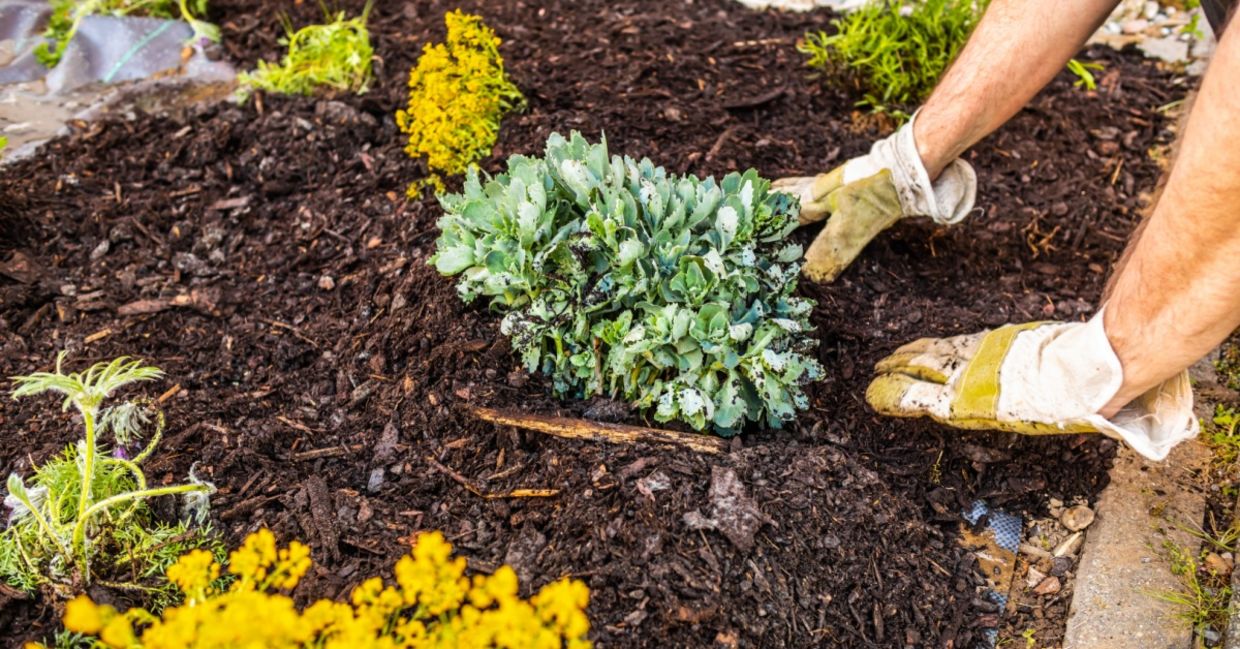
(Ingrid Balabanova / Shutterstock.com)
Mulching is a simple yet highly effective gardening practice that offers a multitude of benefits for your garden. By applying a layer of material—either organic or inorganic—over the soil, you can significantly improve the health and appearance of your plants. Gardeners World reports that whether you are an experienced gardener or just starting out, understanding the importance of mulching can help you create a thriving, sustainable garden.
What is mulch?
Mulch is any material spread or laid over the surface of the soil as a covering. It can be organic, such as wood chips, straw, grass clippings, or compost, or inorganic, like gravel, plastic sheeting, or landscape fabric. Each type of mulch has its own set of benefits and is suitable for different gardening needs. Organic mulches are particularly popular because they decompose over time, enriching the soil with nutrients and improving its structure.
The key benefits of mulching
One of the primary benefits of mulching is moisture retention. Mulch acts as a protective barrier, reducing evaporation from the soil and helping to keep the root zone consistently moist. This is especially important during hot, dry seasons when water conservation is crucial. According to The Spruce, mulching can reduce the need for frequent watering by up to 50%, making it an environmentally friendly choice for your garden .
Mulch also plays a significant role in temperature regulation. It helps to keep the soil cooler in the summer by providing shade and insulating the ground. Conversely, in the winter, mulch acts as a blanket, keeping the soil warmer and protecting the roots of your plants from frost. This temperature moderation ensures that your plants are less stressed and more likely to thrive year-round.
Another advantage of mulching is its ability to suppress weeds. By covering the soil, mulch blocks sunlight from reaching weed seeds, preventing them from germinating. This not only reduces the amount of time and effort you need to spend weeding but also minimizes the competition for nutrients and water between your plants and unwanted vegetation. As noted by the JK Cooper blog, effective mulching can lead to a significant reduction in the number of weeds that emerge in your garden .
In addition to its practical benefits, mulch also enhances the aesthetic appeal of your garden. A well-mulched garden looks neat and polished, with the uniform layer of mulch providing a clean backdrop that highlights the beauty of your plants. Mulch can also help prevent soil erosion by reducing the impact of rain on the soil surface, as explained in a feature on WCNC.
Choosing the right mulch for your garden
When selecting mulch, it's important to consider the specific needs of your garden. Organic mulches, such as bark, straw, or compost, are ideal for improving soil health over time as they decompose. These types of mulch are particularly beneficial for vegetable gardens and flower beds, where enriching the soil is a priority.
Inorganic mulches, such as gravel or rubber, are better suited for decorative purposes or areas where you want long-lasting coverage without the need for frequent replacement. These materials do not decompose, so they provide a more permanent solution for weed control and soil protection.
Mulching is a versatile and essential practice for any gardener. By retaining moisture, regulating soil temperature, suppressing weeds, and enhancing the visual appeal of your garden, mulch provides a host of benefits that can lead to healthier, more vibrant plants. Whether you choose organic or inorganic mulch, incorporating this practice into your gardening routine will help you create a sustainable and beautiful garden that thrives throughout the year.
YOU MIGHT ALSO LIKE:
5 Food Scraps to Nourish Your Garden
7 Tips for a Better Garden
The Beauty of Random Gardening







